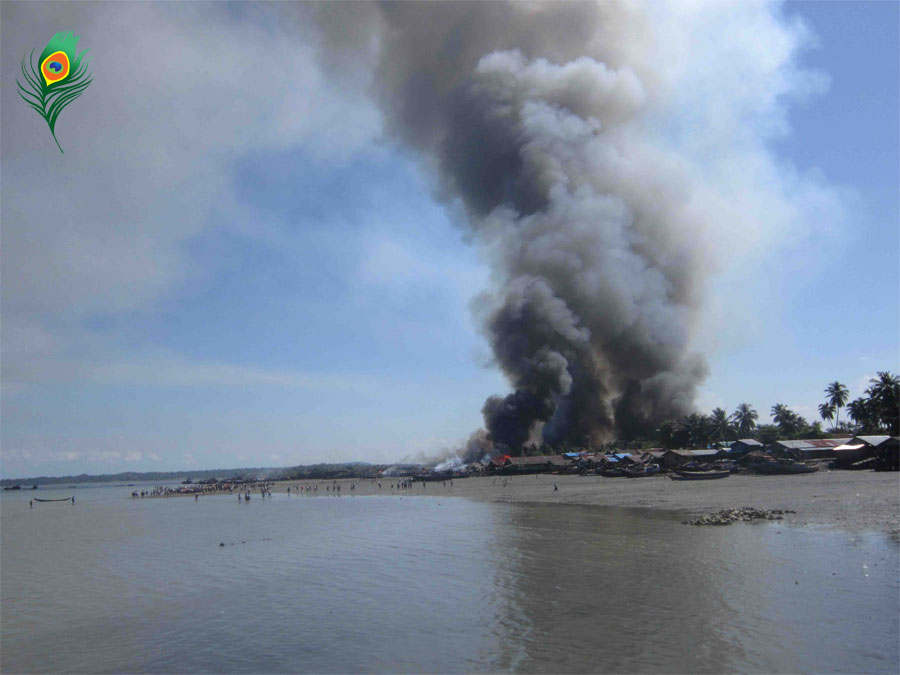Various civic groups, activists and academics in Myanmar have spoken out against Tuesday’s report about the Rohingya crisis by US-based Human Rights Watch (HRW), with many voicing particular objection at the use of the term “ethnic cleansing” in the report.

Sit Myaing, the secretary of the independent academic panel Myanmar National Human Rights Commission, said that the “harsh accusations” used in the report by the US-based rights group were unconstructive and more likely to cause further problems.
“The UN and other organizations have done what they should do. The [Rakhine-Rohingya] situation is moving in a positive direction,” he told Mizzima. “A report containing harsh accusations is unconstructive, and does not represent 60 million people.”
He said that his 15-member commission found no events that could be described as acts of genocide.
HRW’s 153-page report released on April 22, titled ‘All You Can Do is Pray: Crimes Against Humanity and Ethnic Cleansing of Rohingya Muslims in Burma’s Arakan State,’ accuses the Myanmar government and local authorities of forcibly displacing more than 125,000 Rohingyas and other Muslims in an ongoing campaign since June 2012.
“Burmese [Myanmar] officials, community leaders, and Buddhist monks organized and encouraged ethnic Arakanese [Rakhine Buddhists] backed by state security forces to conduct coordinated attacks on Muslim neighborhoods and villages in October 2012 to terrorize and forcibly relocate the population. The tens of thousands of displaced have been denied access to humanitarian aid and been unable to return home,” the report said.
Aung Myo Min from Human Rights Education Institute of Burma (HREIB) told Mizzima that the terminology used by HRW is unacceptable in view of the difficulties involved in the situation.
“In such a sensitive situation, the use of the phrase ‘ethnic cleansing’ is unacceptable,” he said. “Ethnic Cleansing means eliminating other ethnic groups. This is not the case [in Rakhine State].”
Ko Pyone Cho from the 88 Generation (Peace and Open Society) said that reports and explanations have been forthcoming from the government and its opponents, and that more evidence needs to be examined.
88 Generation colleague Min Zaya told Mizzima that those who stoked the flames of nationalism were the ones who violated human rights.
“The main thing is that this is not an ethnic problem, it is the fact that the Rule of Law in Myanmar is so weak,” he said.
Min Zaya added: “We, the 88 Generation, who fought for human rights for so many years, are unhappy about the HRW report. I feel that it is an insult to our nation.”


